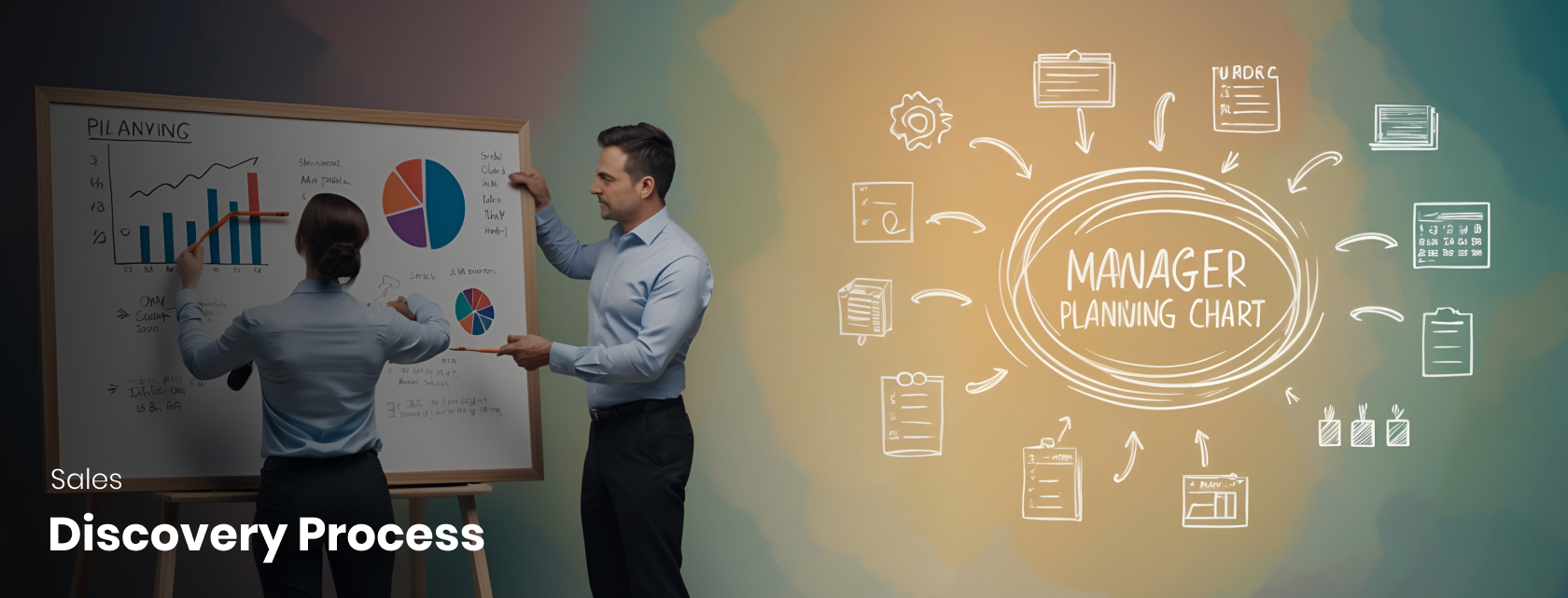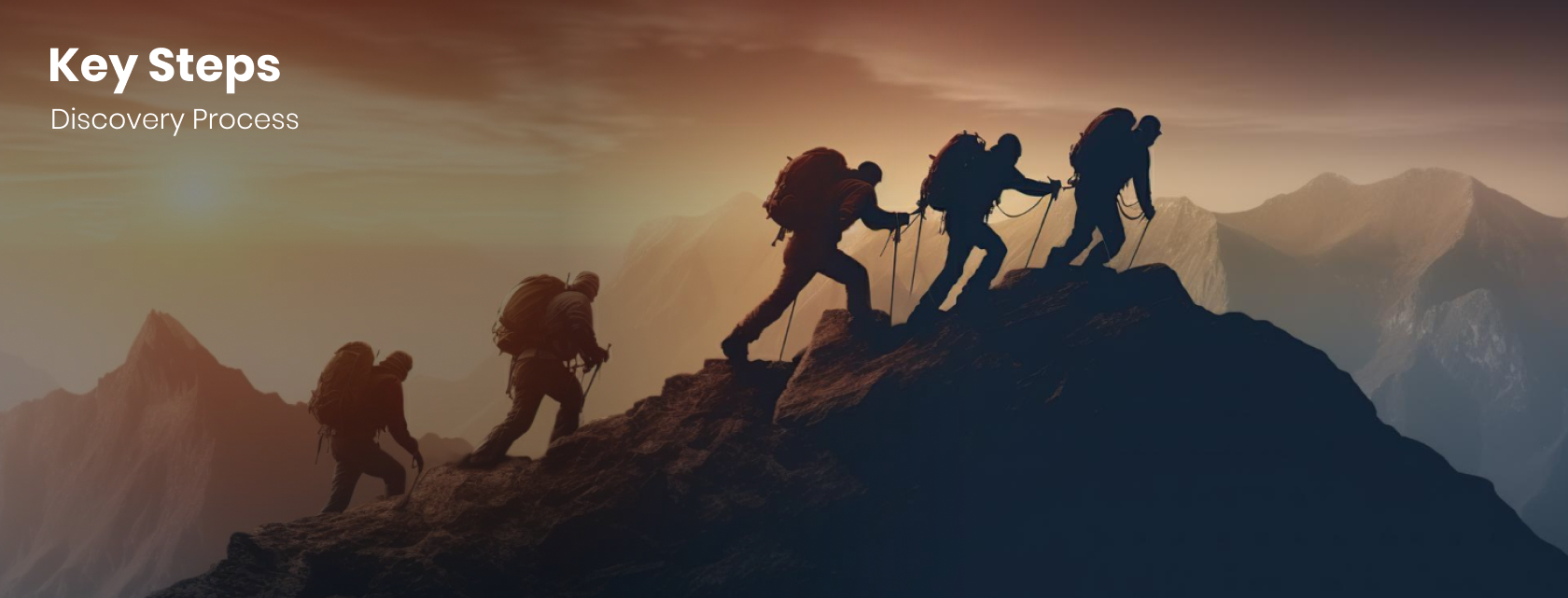Struggling to convert enterprise leads into loyal customers? According to HubSpot, 42% of sales professionals say the discovery phase is the most challenging part of the sales process, yet it’s also the most critical for closing high-value deals. That means the difference between a lost opportunity and a long-term client often comes down to how well you run your sales discovery process.
Imagine walking into every sales call with a clear roadmap—knowing exactly what to ask, how to listen, and how to uncover the real needs of your prospects. The right discovery process doesn’t just fill your pipeline; it builds trust, shortens sales cycles, and sets the stage for enterprise success. Let’s dive into the strategies and tools that can transform your approach and help you master the art of sales discovery.
Key Takeaways - Sales Discovery Process
- The sales discovery process is essential for enterprise sales success and should be structured and intentional.
- Effective discovery process in sales involves research, asking high-impact questions, and active listening.
- Avoid common mistakes like talking too much or skipping qualification during the discovery sales process.
- Use technology, templates, and ongoing training to enhance your discovery process sales.
What is the Sales Discovery Process?

The sales discovery process is the foundation of every successful enterprise deal. It’s the structured approach sales professionals use to uncover a prospect’s true needs, challenges, and goals. Unlike a generic pitch, the discovery process in sales is about asking the right questions and actively listening to build trust and credibility.
A well-executed discovery sales process helps you qualify leads, tailor your solutions, and set the stage for a productive partnership. For enterprise sales, where deals are complex and involve multiple stakeholders, mastering this process is non-negotiable.
Why the Discovery Process in Sales Matters
Enterprise buyers expect a consultative approach. They want to feel understood, not sold to. The discovery process sales professionals use is what separates top performers from the rest. It’s not just about gathering information—it’s about creating value from the very first sales call.
What is the Sales Discovery Process?

1. Pre-Call Research
Before your discovery call, take the time to research the prospect’s company, industry, and recent news. Use LinkedIn, company websites, and industry reports to gather insights. This preparation allows you to ask relevant sales discovery questions and demonstrate genuine interest.
2. Setting the Agenda
Start the sales call by setting clear expectations. Briefly outline what you hope to achieve and invite the prospect to share their goals for the conversation. This collaborative approach fosters rapport and ensures that both parties are aligned.
3. Asking High-Impact Sales Discovery Questions
The heart of the sales discovery process is asking open-ended, insightful questions. Focus on uncovering pain points, business objectives, and decision-making criteria. Examples include:
- What challenges are you currently facing in your workflow?
- How do you measure success for this project?
- Who else is involved in the decision-making process?
These sales discovery questions help you dig deeper and reveal the real drivers behind a potential deal.
4. Active Listening and Note-Taking
Listen more than you speak. Take detailed notes and reflect back what you’ve heard to confirm understanding. This step is crucial in the sales discovery process because it demonstrates empathy and attention to detail.
5. Qualifying the Opportunity
Not every lead is a fit. Use the discovery sales process to assess budget, authority, need, and timeline (BANT). This ensures you focus your efforts on high-potential opportunities.
6. Summarizing and Next Steps
At the end of the discovery call, summarize key points and agree on next steps. This maintains momentum and sets clear expectations for both parties.
Tips for Effective Enterprise Sales Discovery

Personalize Every Interaction
Tailor your approach for each prospect. Use the information gathered during research to make your sales call relevant and engaging.
Leverage Technology
Use CRM tools to track interactions and automate follow-ups. Fast Learner’s e-learning platform offers resources to help you master these tools and techniques.
Collaborate with Your Team
Enterprise deals often involve multiple stakeholders. Share insights from the discovery process sales with your team to ensure a unified approach.
Keep Improving Your Skills
Continuous learning is key. Consider enrolling in our enterprise sales training to stay ahead of the curve and refine your sales discovery process.
Common Mistakes to Avoid

- The discovery process in sales is about listening, not pitching. Avoid dominating the conversation.
- Generic questions lead to generic answers. Prepare thoughtful, specific sales discovery questions that show you’ve done your homework.
- Don’t rush to the demo or proposal stage. Use the discovery sales process to ensure the opportunity is worth pursuing.
- Always record key takeaways from each discovery call. This information is invaluable for future interactions and for your team.
Sales Discovery Process Tools and Resources

CRM and Automation
Leverage CRM platforms to organize notes, schedule follow-ups, and track progress through the discovery process sales.
Online Learning
Platforms like Fast Learner offer specialized courses on the sales discovery process and related skills. These resources can help you stay updated on best practices and new techniques.
Templates and Checklists
Use checklists to ensure you cover all critical areas during each sales call. Templates for sales discovery questions can help you stay consistent and thorough.
Conclusion: Sales Discovery Process
Mastering the sales discovery process is the key to unlocking enterprise sales success. By focusing on research, asking the right questions, and truly listening, you can build trust and uncover opportunities that others miss. Fast Learner is committed to helping you excel at every stage of the discovery process in sales.
FAQs - Sales Discovery Process
The discovery process in sales is a structured approach to uncover a prospect’s needs, challenges, and goals through targeted questions and active listening. It helps sales professionals qualify leads and tailor solutions for better results.
The 7 steps of the sales process are: prospecting, preparation, approach, discovery, presentation, handling objections, and closing. Each step builds on the previous to guide prospects toward a purchase.
Best practices for sales discovery include thorough research, asking open-ended questions, active listening, documenting insights, and personalizing each interaction. These steps ensure a deeper understanding of the prospect’s needs.
The 4 stages of the sales process are: prospecting, discovery, presentation, and closing. Each stage is essential for moving leads through the sales funnel efficiently.



